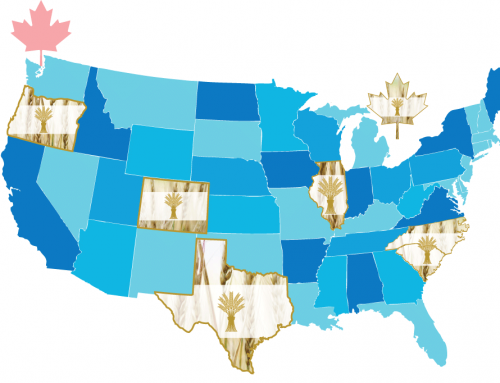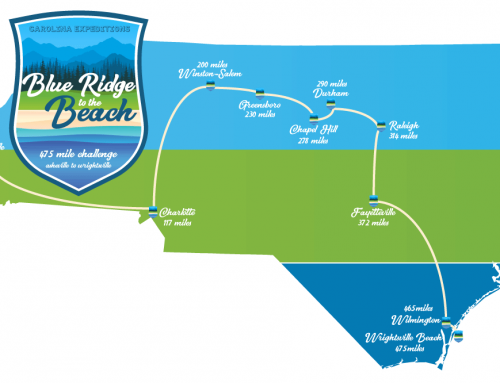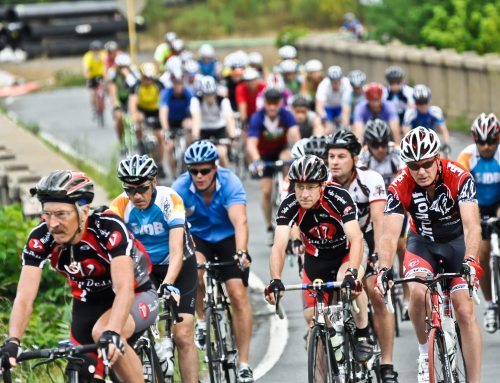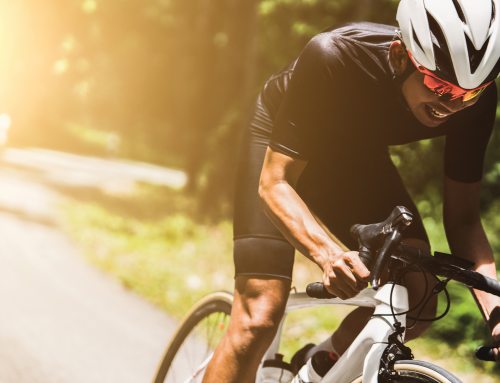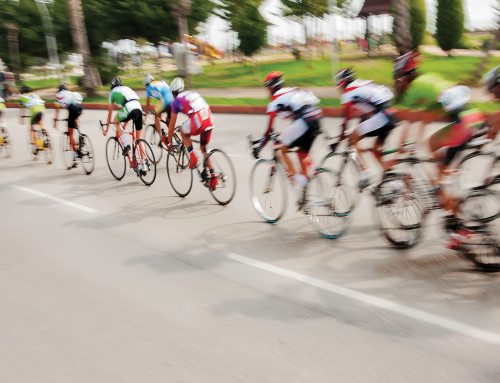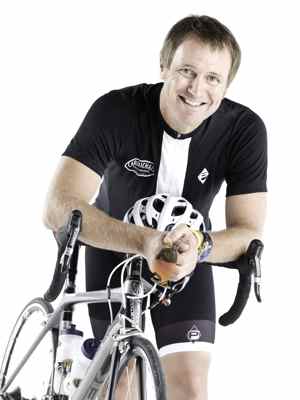
The American Diabetes Association is teaming up with Lance Armstrong’s former cycling coach Chris Carmichael and challenging riders to be part of the movement to Stop Diabetes® by participating in the 21st Annual Tour de Cure®, a cycling event to raise funds to help fight diabetes. More than 60,000 cyclists are expected to participate in the Tour de Cure at sites throughout the country in 2012. The North Carolina event will take place on June 2. Our cycling columnist, Victor Jimenez, caught up with Carmichael to talk about the Tour de Cure, training, recovery, and a lot more.
Q&A with Top Cycling Coach Chris Carmichael
By Victor Jimenez
If you have watched cycling on TV over the last decade you have seen Lance Armstrong win mountain stages in the Tour de France, George Hincappe leading the pack in the Spring Classic races in Europe, Peter Reid or Craig Alexander winning the Ironman in Hawaii. What do they all have in common? They have all shared the same coach, Chris Carmichael. In this interview with Chris I asked him about his career and how everyday athletes can do better in their training and charity events like the Tour de Cure.
Victor: Chris is a cycling coach, mostly for endurance athletes. Why don’t you tell us who you are, who you’ve coached and a quick synopsis of your career?
Chris: I got into bicycle racing when I was 9 years old. I’m 51 years old now. I grew up in south Florida. I was a member of the ’84 Olympic team, and then a broken leg got me out of cycling as an athlete. I was a member of the 7-Eleven team and the first American team to race at the Tour de France.
I got into coaching after my injury and worked my way up from Men’s Road national coach to national coaching director. Then I started my own coaching company, Carmichael Training Systems. I coached Lance, George Hincappe, Bobby Julich, Peter Reid, Craig Alexander, and many other top elite endurance athletes.
Victor: In North Carolina and nationwide, we have the Tour de Cure, which is a fundraiser for the American Diabetes Association. What is your involvement in that?
Chris: I’m a spokesperson for the Tour de Cure. I got involved with the Tour de Cure for two reasons. One is that Carmichael Training Systems is a fitness nutrition company. Type 2 diabetes can really be controlled and managed many times by exercise and diet.
That fits nicely with what we do at Carmichael Training Systems, so we feel like we can make an impact on people who are struggling with Type 2 diabetes and maybe don’t have an active lifestyle or aren’t eating properly. It’s important that we feel like we can take an active role.
Another reason is a personal one. My oldest daughter, who’s 18 now, has had a childhood friend since kindergarten who has had diabetes for a long time. I’ve watched her struggle with managing diabetes, and I’ve seen the impact it has on her and her family, and obviously my daughter and our family. Ultimately, we want to win this battle and stop it.
Victor: I know you live in Colorado now. Have you ridden in North Carolina, and what do you think of the riding here?
Chris: I’ve ridden throughout the state of North Carolina. The riding is great. We have a training center in Brevard, N.C. Riding in the mountains from Brevard to Asheville is wonderful, and throughout the state of North Carolina. I used to train a lot out of Greensboro and Winston-Salem. There are some great roads.
I used to race up Pilot Mountain not far from Winston-Salem. Hanging Rock was another one. There are a lot of roads with very little traffic.
Victor: We have a lot of events in the summer, and the local Tour de Cure we have is going to be in June. I’m sure it’s going to be hot and humid, like it usually is in North Carolina in June. That might be a little bit of a struggle for some athletes.
Chris: Absolutely. The heat and humidity in the Southeast can always be challenging. It’s important that if you’re riding in hot, humid conditions, you need to hydrate early and often. It’s best to hydrate with a sports drink that has electrolytes.
A good rule is that if it is really hot and humid, you want to get start hydrating early so you don’t have to play catch-up. The problem is that once you get behind, it’s virtually impossible to catch up. A 2% drop in bodyweight because of fluid loss can equate to about a 10% drop in performance for an athlete.
Victor: You have worked with a lot of elite athletes. Most people that do charity-type cycling events are just regular people. They are not elite athletes. They have jobs, families and all kinds of commitments. How can they train effectively to be able to do 100-mile rides a couple of times a year and other events, and still be healthy?
Chris: I’m going to make some assumptions. How can people who aren’t elite athletes and really don’t have a lot of time to train, train effectively?
First, focus on consistency. Make sure you’re getting out as often as you can. That’s important because people who don’t have a much time to ride basically get out on the weekends. That’s a big time gap to pass between workouts.
Try to look at increasing the consistency so you’re getting out three or four times a week. They don’t have to be long rides, but make sure you’re getting out, getting on the bike, and getting the workout in.
Second, increase the intensity of your workout. Make sure you’re focusing on improving your power. You want to ride at an effort that is at an intensity you can maintain for about an hour.
If you have an hour to ride, break that up into intervals instead of a steady state ride. If you only have 45 minutes, you may want to do three 10-minute intervals with five minutes between each one of those as a break. Those 10 minutes should be done at a pace you think you can sustain for an hour.
I would also say to make sure you have ample recovery between your workouts. Many people who are time-crunched think that because they don’t have a lot of time, every workout needs to be as hard as they can go.
The problem is that sometimes they don’t allow themselves enough recovery before they do the next intense workout, even though it might be very short.
Victor: Recovery is one of the most important aspects of training. If we don’t allow ample time to recover we can never improve. How do you look at recovery in a training plan?
Chris: You have to make sure you have a proper training in the first place. You have to make sure you apply enough training load and then give yourself enough time to recover. That’s where you adapt. It’s not when you’re training hard. During the recovery time is when your body adapts. That means it gets stronger, faster and more powerful.
Victor: Would you say the training is different for someone like a Tour de France champion? Obviously their volume is going to be different, but are they actually doing very different training than the athletes who are doing Tour de Cure types of rides?
Chris: An elite athlete is somewhat of a different animal. How quickly they adapt to training loads is usually one of the reasons why they are elite. The fundamental principles that govern training are the same whether you’re an elite athlete or a time-crunched athlete.
Victor: Since you started riding to now, as a coach to elite athletes, how have you seen the way we train change over the years?
Chris: It’s obviously changed, and it’s primarily driven by new technology, practices and methods for training and nutrition. A lot still remains the same. When you look back at some of the speeds athletes were going 30 or 40 years ago, they’re definitely faster now, but not that much considering the bikes and the technology.
Ultimately, over the last 40 years, everybody has known what the fundamental principles are of training. Coaches and trainers 40 or 50 years ago tried to apply those. They just didn’t have the same tools we have now.
A coach or trainer still has to make decisions with the information they’re gathering from all these tools we have. We now have a lot more objective data to make those decisions. We feel like we’re making more informed decisions from the objective data, but experience is still critical.
Science only takes you up to the point that’s known about the things that affect performance. There’s still a lot that’s unknown that affects performance.
That’s where experience of the coach or trainer, their foresight, and their ability to articulate, communicate and ultimately inspire their athletes is critical. If they can’t inspire their athletes, they’re not going to get out there and do anything great. It first starts with that inspiration.
Victor: The inspiration is interesting. On top of that is accountability. Having a coach, there’s someone you have to report back to on your workout and if you did that interval session they gave you yesterday. That’s a huge thing.
With all these technology tools you’re talking about, not that many years ago they were really in the realm of the super-elite athletes and weren’t available to your everyday person. It’s interesting that now we all have access to some of these technology tools.
Chris: Absolutely, and we have a much better understanding of how nutrition affects performance.
Victor: What’s your big advice for athletes doing centuries and/or the Tour de Cure? Do you have any tips or wisdom for people just starting out? They’re not necessarily a super athlete. They’re just getting out there, and they want to have a good time for a great cause. Do you have any words of wisdom for them?
Chris: When these group rides like the Tour de Cure start, there’s a lot of excitement. You’re with your friends and family. Many times the beginner athletes will start off a little too hard. They don’t necessarily feel it in the first few miles, but they start to feel it five or 10 miles into it. At that point, they’re going to start getting more uncomfortable the longer they go.
One of the first recommendations I would make is to start slow. Start at a conversational pace so you can ride with somebody and easily finish a full sentence without feeling like you have to gasp breath in between each word.
Stop often: Get off your bike, and stretch. That’s going to help your lower back and neck. You’re in that static position on the bike. Make sure you’re hydrating. You can refill your bottle at the aid station to keep your energy up.
The next tip would be to stop early and stop often at the aid station.
The last tip is to make sure you anticipate the weather conditions. You’re going to want to make sure you have sunscreen on if the ride is going to be in the warm summer months. You don’t want to get out there and start baking. It’s all about having fun during the course of the whole thing. You want to make sure that it’s fun from the beginning all the way through.
Victor: Those are some great tips. The one I love is to stop early and often, and have fun out there. We don’t want to forget that we’re out there to have fun for a good cause.
That is really fantastic, Chris. I really appreciate you taking the time today to chat about this.
Chris: Thank you very much. I hope to see you at a Tour de Cure.
# # #
Victor Jimenez is the owner and professional bicycle fitter at bicyclelab.com. Bicycle Lab is a small boutique studio that specializes in bicycle fitting, custom bicycles, and education. Victor teaches clinics and classes to individuals, coaches, and teams on bicycle fit, and the technical aspects of cycling and is co-host of the www.cycling360media.com podcast. He can be reached at www.Bicyclelab.com, www.Facebook.com/bicyclelab, or victor@bicyclelab.com.


